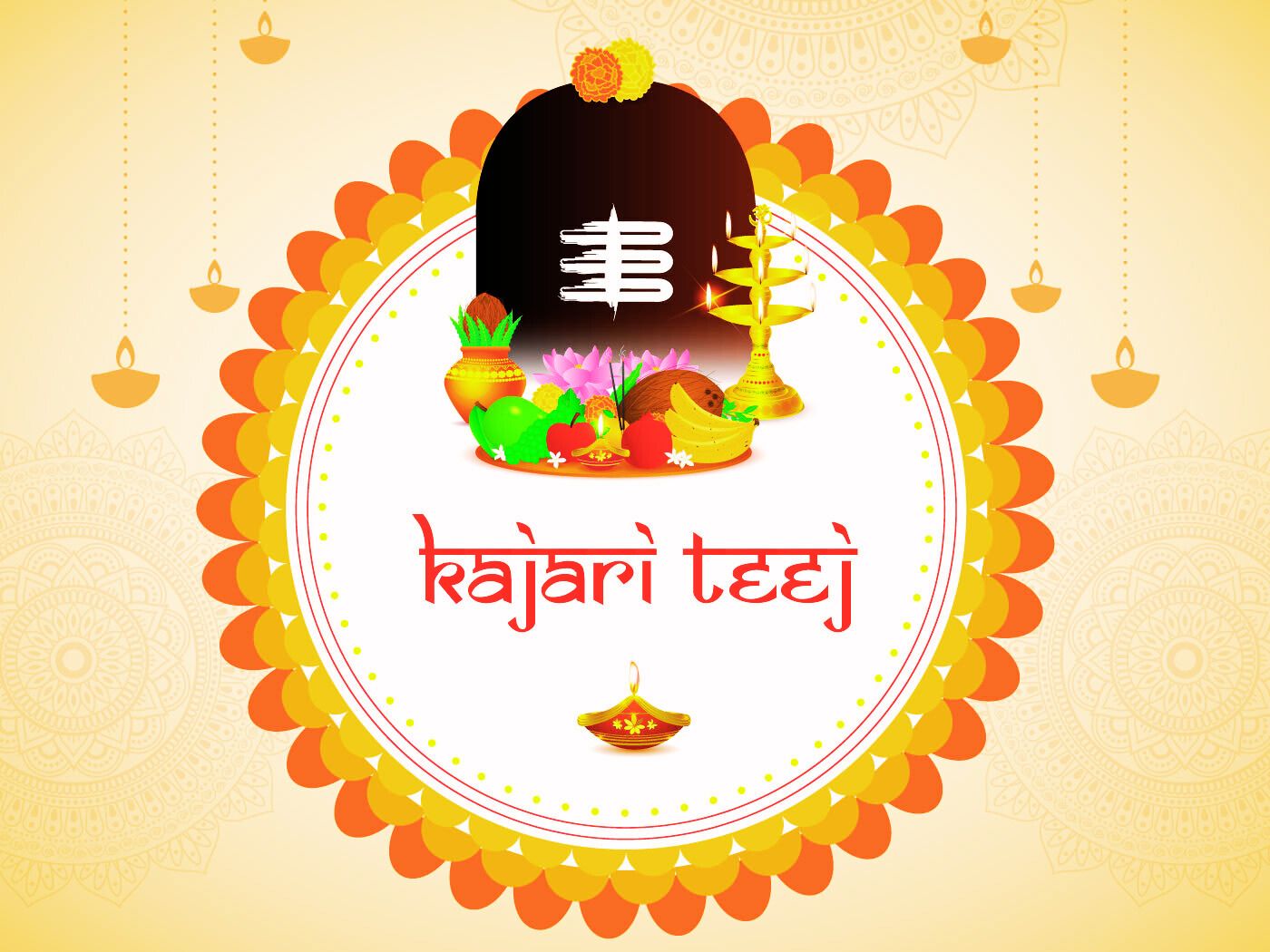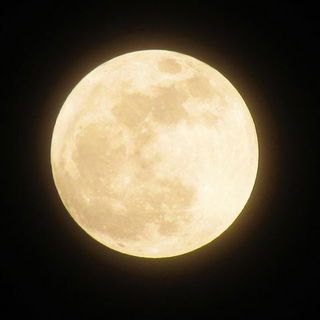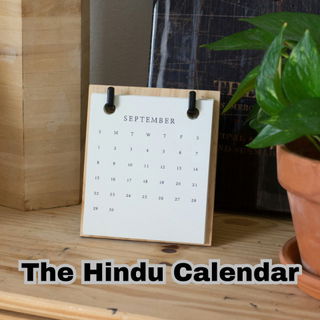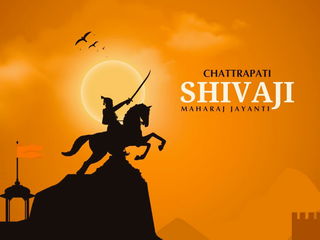- Calendar
- Calendar 2026
- August
- Kajari Teej
Kajari Teej
Kajari Teej is observed every year on the third day of the dark fortnight or Krishna Paksha Tritiya in the Hindu month of Bhadrapada.
Also, known as Badi Teej, the festival is celebrated right 15 days after Hariyali Teej and this beautiful monsoon celebration observed with great enthusiasm across several states in India.
Married women and young girls observe this, especially for the long life and well-being of their spouses or to attain a dream spouse, reflecting the deep spiritual love between Goddess Parvati and Lord Shiva.
Kajari Teej 2025 Date and Timing
Kajari Teej in 2025 will be observed on Tuesday, August 12, with the Tritiya Tithi beginning at 10:33 AM on August 11 and ending at 8:40 AM on August 12.
The Story of Kajari Teej
The story behind Kajari Teej begins with a graceful and kind-hearted woman named Kajari. She was married to a wealthy merchant and lived surrounded by luxury.
But despite all the material comforts, Kajari felt a deep void in her life, she longed for a child. Her heart ached for the joy of motherhood, something no amount of wealth could provide.
Desperate for a blessing, Kajari turned to faith. With unwavering devotion, she began observing a strict fast on the day of Teej, dedicating her prayers to Goddess Parvati, the divine symbol of love, devotion, and marital bliss.
Goddess Parvati was touched by her rigorous penance and prayer and one night she appeared in Kajari's dream.
Goddess Parvati commended her devotion and suggested her to continue observing Teej with a sincere heart and true soul. The goddess reassured her that her heartfelt prayers would soon be answered.
Following her advice, Kajari observed Teej with utmost sincerity and dedication. And on the third day of her Vrat, a miracle happened, Kajari gave birth to a healthy baby boy.
Overwhelmed with joy, she thanked Goddess Parvati for blessing her life with motherhood.
Grateful for the transformation in her life, Kajari made it a tradition to observe the fast every year. She didn’t just stop there, she began encouraging other women facing hardships to observe the fast too, sharing her story and the power of faith.
Over time, her devotion, and the miracle it inspired became a tale of hope and belief passed from one woman to another.
This led to the celebration of Kajari Teej, a festival that honors her journey and continues to symbolize devotion, strength, and the sacred bond between a woman and the divine.
Kajari Teej is rooted in legends that reflect devotion, sacrifice, and marital bliss.
One popular folklore speaks of a woman from a small village who, despite harsh circumstances, continued her fast and rituals during a famine, praying for her husband's safety.
Touched by her unwavering devotion, Goddess Parvati blessed her, and it is believed that her husband returned safely, and her village flourished again.
The festival is also spiritually linked to the reunion of Shiva and Parvati, highlighting the divine feminine's strength, endurance, and love.
Unlike Hariyali Teej or Hartalika Teej, which focus on Parvati's penance, Kajari Teej is more grounded in folk traditions, reflecting the earthy, rural rhythms of monsoon life in India.
Rituals of Kajari Teej
-
To pray for their husband's wellbeing and a long married life, they observe Nirjala Vrat and do not even drink a drop of water.
-
Kajari folk songs are sung in Bhojpuri and Awadhi, expressing themes of love, longing, nature, and separation. These are often performed while swinging on beautifully decorated jhulas tied to trees.
-
In some regions, a neem tree or its branch is worshiped. Women offer sattu, curd, cucumber, and sacred water, followed by an evening aarti to the moon seeking divine blessings.
-
Women wear vibrant traditional outfits like sarees or lehengas in shades of green, red, or yellow, and adorn themselves with mehendi, bangles, and jewelry, creating a festive and colorful vibe.
Kajari Teej Celebrations Across India
Kajari Teej is celebrated with unique regional flavors across different parts of India, especially in Uttar Pradesh and Bihar, where it is deeply rooted in rural traditions.
Women gather in groups to sing Kajari geet, swing on beautifully decorated jhulas, and share stories of Lord Shiva and Goddess Parvati. The celebrations here are simple but spiritually profound.
In Madhya Pradesh, women often come together at temples or under sacred trees to perform rituals as a group. The festivities are enhanced with folk singing competitions and traditional dances, creating a lively and communal atmosphere.
Rajasthan, particularly in its rural and tribal areas, celebrates Kajari Teej with colorful swings, folk dances, and devotional music. Women observe a fast and make offerings of milk and sweets to idols of Shiva-Parvati or to neem trees, seeking blessings for a happy and fulfilling marital life.
In the Bundelkhand region and its neighboring areas, the traditions take on a distinct form. Women craft small idols from cow dung or mud, symbolizing fertility, devotion, and prosperity. These handmade figures are worshiped with prayers for both marital bliss and good harvests, tying together the spiritual and agrarian aspects of the festival.
Modern Celebrations of Kajari Teej
Fasting takes center stage during the day, but the real fun starts with a feast either the night before or post-moonrise, depending on where you're from.
Today’s festive plates are still rooted in tradition, serving up delights like sattu (roasted gram flour mix), crispy kachoris and puris, creamy kheer, syrupy malpuas, iconic Rajasthani ghevar, and seasonal fruits like bananas, guavas, and cucumbers.
Kajari Teej in the modern world is more than a ritual, it's a heartfelt celebration of feminine energy, love, and connection with nature.
Women honor the day by embracing their roots through traditional folk songs, dressing up in vibrant attire, applying mehndi, and celebrating the romance of the monsoon.
It’s about channeling goddess energy, celebrating resilience, and manifesting emotional strength, prosperity, and happiness in relationships, just like the timeless love story of Parvati and Shiva.
Recommended Articles

Other Celebrations
-
Aug 12 Wed
-
Aug 15 Sat
-
Sep 13 Sun

Kajari Teej - Next years
Friday, 20 August 2027
Tuesday, 08 August 2028
Monday, 27 August 2029










